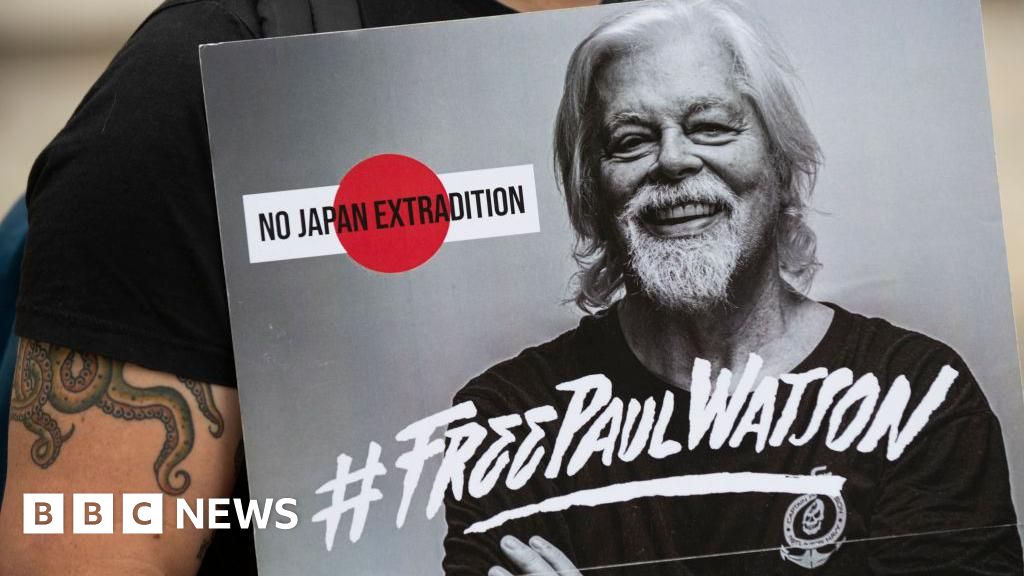Physical Address
304 North Cardinal St.
Dorchester Center, MA 02124
Physical Address
304 North Cardinal St.
Dorchester Center, MA 02124

 AFP
AFPAnti-whaling activist Paul Watson has been released from prison in Greenland, where he spent five months in custody, after Denmark rejected a Japanese request to extradite him.
Watson, 74, was detained by police when his ship docked in Greenland’s capital, Nuuk, last July.
Police had acted on a 2012 Japanese warrant that accused him of causing damage to a Japanese whaling ship, obstructing business and injuring a crew member during an encounter in Antarctic waters in February 2010.
Watson, who is a Canadian-American citizen and appeared on the reality show Whale Wars, denied any wrongdoing. He told the BBC of his “relief” at being freed and able to return home to see his children.
Speaking by video call from Nuuk, where he had just been released from prison, Watson said his time in prison had drawn attention to “illegal” Japanese whaling.
“All the evidence shows that I was not even there when this crime allegedly occurred,” he added. “We document everything. Everything is filmed.”
The hunting and consumption of whale meat has been harshly criticized by conservation groups, but officials in Japan maintain that it is part of the country’s culture and way of life.
The Danish Ministry of Justice confirmed that it would not comply with the Japanese extradition request, basing its decision on “the nature of the circumstances” as well as the fact that the incident dates back 14 years.
His lawyer, Julie Stage, told the BBC that Watson was “obviously relieved” and “looking forward to being reunited with his wife and children.”
As Greenland is an autonomous territory of Denmark, the decision on his extradition was made in Copenhagen. Although Japan and Denmark do not have an extradition treaty, the government in Tokyo had asked Denmark to hand it over.
Denmark’s Justice Minister Peter Hummelgaard said it had been of “central importance” to ensure that Watson’s time detained in Greenland was deducted from any potential prison sentence he may have later faced in Japan.
He added that the ministry concluded that “it cannot be assumed with the necessary certainty that this will be the case” after correspondence with Japanese authorities.
Mr Watson’s ship, named M/Y John Paul DeJoria, was heading to the North Pacific with a crew of 26 volunteers on board, in an attempt to intercept a new Japanese whaling ship when it docked to refuel at Nuuk on 21 July.
At an earlier custody hearing, Watson told the court the case was “about revenge for a television show that extremely embarrassed Japan in the eyes of the world.”
Watson said he also planned to go to Interpol in the new year to discuss an outstanding red notice for his arrest.
He also added that his organization was willing to continue its anti-whaling activities.
For years, Watson has been a controversial figure known for his confrontations with whaling ships at sea.
The activist is the former director of the Sea Shepherd Conservation Society, which he left in 2022 to create the Captain Paul Watson Foundation.
Japan withdrew from the International Whaling Commission and resumed commercial whaling in 2019, after a 30-year hiatus, although during that time it continued whaling for what it said were research purposes.